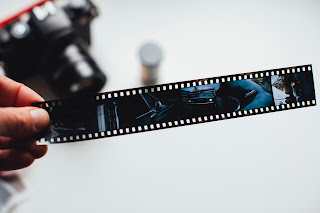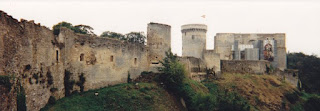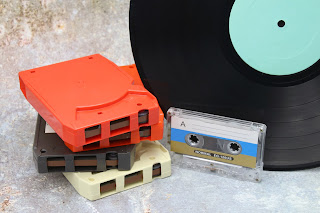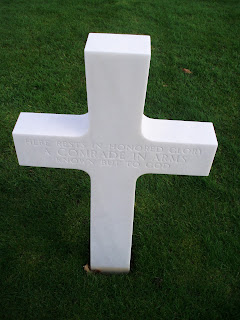I wrote this poem April 21, 2007 after the cowardly attack on Virginia Tech that senselessly took 32 innocent lives and that of the shooter. Sadly, not much has improved since then. I have been aghast with all the violence in the past few years all over the US. In the name of the victims at Virginia Tech, Columbine, Sandy Hook, Parkland, Las Vegas, Orlando, Uvalde, Michigan State, and so many more, we need to set aside our differences and put an end to this!
As many of the victims at Virginia Tech were in French and German classes, I translated it into French (with valuable proofreading help from the folks at the A la Française Forum, which is no longer online), and I appreciate the excellent translation work into German by Jessica Eberhardt and Beate Peter.
 |
| Photos: Virginia Tech |
ENGLISH
A Nightmare and a Legacy
A senseless act
A heinous deed
And when the nightmare was over, 32 innocent lives had been snuffed out
32 lives with so much promise
Suddenly cut short in their prime
They studied to make the world a better place
They taught their students the skills they would need to succeed
But in one catastrophic morning
Their studies and lessons came to a horrifying end
And 33 families were left wondering why
While shockwaves reverberated across the campus,
Across the country,
Across the world
They came from all over the world:
From Israel, Indonesia, Peru, Lebanon, Canada, Vietnam, India, Egypt, Puerto Rico, and across the USA
Each had a dream
And each pursued it
So why did so much work, so much living,
Have to come crashing down in such a sudden heartbreaking manner?
What purpose did God have for allowing this to happen?
Could it be that others will pick up the torches?
Whatever the case,
May God be praised
For so many lives well lived
For sparing so many more lives –
Both by a professor's last selfless heroic act
And because so many other victims survived
God can work through even the worst tragedies
May He be glorified for what He will do
May their legacy live on
And may He comfort the families and friends
And heal the wounded
As only He can.
FRENCH
Un cauchemar et un legs
Un acte insensé
Un oeuvre épouvantable
Et lorsque le cauchemar fut terminé, 32 vies innocentes s'en étaient allées
32 vies avec tant de promesse
Fauchées dans la fleur de l'âge
Ils étudièrent pour rendre le monde meilleur
Ils enseignèrent à leurs étudiants les compétences dont ils auraient besoin pour réussir
Mais en une seule matinée catastrophique,
Leurs études et leurs leçons se terminèrent de façon horrifiante
Et 33 familles se demandèrent pourquoi
Tandis que l’onde de choc retentit à travers le campus,
À travers le pays,
À travers le monde
Ils vinrent du monde entier
D'Israël, de l'Indonésie, du Pérou, du Liban, du Canada, du Viêt Nam, d’Inde, d’Égypte, du Puerto Rico, et d'à travers les États-Unis
Chacun eut un rêve
Et chacun le poursuit
Pourquoi donc tant de travail, tant de joie de vivre,
Devaient-ils s'effondrer dans un déchirement si soudain?
Pourquoi Dieu a-t-Il permis que ceci se produise?
Se pourrait-il que des autres se passeront les flambeaux?
En tout cas,
Que Dieu soit loué
Pour tant de vies si bien vécues
Pour avoir épargné tant d'autres vies –
Et à cause du dernier acte désintéressé et héroïque d'un professeur,
Et parce que tant de monde survécut
Dieu peut oeuvrer même à travers les pires des tragédies
Qu'Il soit glorifié pour ce qu'Il fera
Que leur legs survive
Et qu'Il soulage les familles et les amis des morts
Qu'Il guérisse les blessés
Comme Il peut, Lui seul, le faire.
GERMAN
Ein Albtraum und ein Vermächtnis
Eine sinnlose Tat
Eine schandhafte Arbeit
Und als der Albtraum yu Ende war,
waren 32 unschuldige Leben ausgelöscht
32 Leben mit so viel Hoffnung
In ihrer höchsten Vollkommenheit auf einmal abgeschnitten
Sie studierten, um die Welt in einen besseren Ort zu verwandeln
Sie brachten ihren Schülern Wissen bei, um es in der Welt zu schaffen
Aber an einem katastrophalen Morgen
Fanden ihre erlernten Fähigkeiten plötzlich ein schreckliches Ende
Und 33 Familien standen mit der Frage nach dem Warum da
Während die Schockwellen über dem Campus zusammenschlugen
Über dem Land
Um die Welt
Sie kamen aus der gangen Welt
Aus Israel, Indonesien, Peru, dem Libanon, Indien, Ägypten, Puerto Rico und überall aus den Staaten
Jede/r hatte einen Traum
Und jede/r lebte ihn aus
Warum musste so viel Arbeit, so viel Leben in einem Herz zerbrechenden Zusammenstoβ auf uns niederfallen?
Welchen Grund hatte Gott für dieses Geschehen?
Könnte es sein, dass andere die Fackeln aufheben
Was der Grund auch sein mag
Mein Gott soll angebetet werden
Für so viele gut gelebte Leben
Und für die Leben, die nicht zu Ende gingen
Gott kann uns sogar in den schlimmsten Zeiten helfen
Er sei gepriesen für das, was er tun wird
Ihr Vermächtnis lebe
Er tröste die Familien und Freunde
Und er heile die Verwundeten
Nur er kann es tun




















.jpeg)








